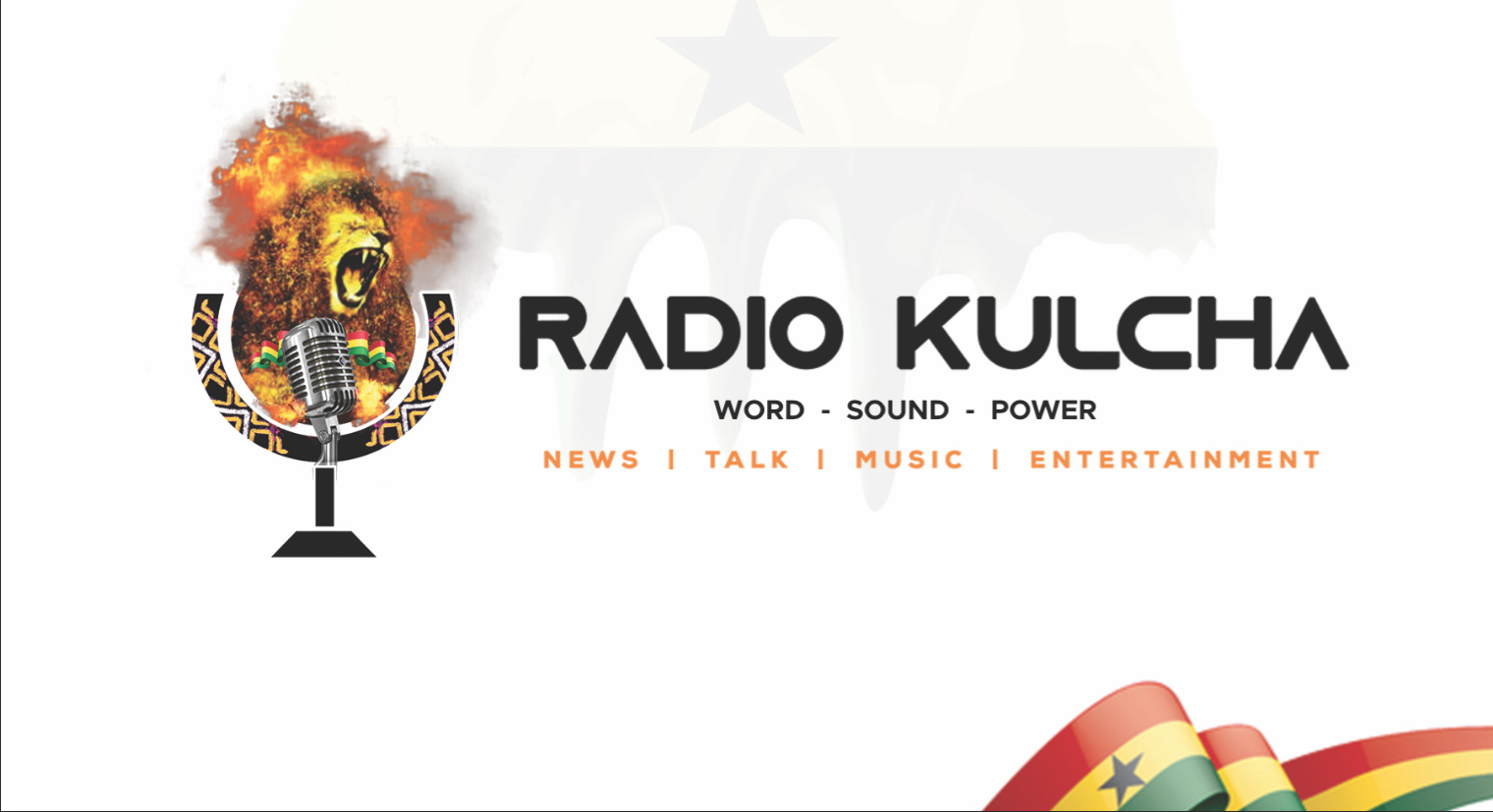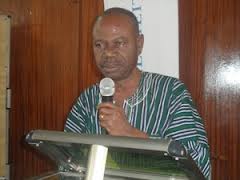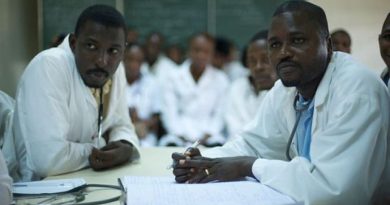The Imperative Case For A National Conversation On TV License Fees
 At the 8th August press conference announcing the reintroduction of the collection of TV licence fees, the Chairman of the National Media Commission said “a comprehensive sensitization and publicity campaign has been drawn up and is being rolled out, beginning with the launch of the resumption of the TY license Fee regime”
At the 8th August press conference announcing the reintroduction of the collection of TV licence fees, the Chairman of the National Media Commission said “a comprehensive sensitization and publicity campaign has been drawn up and is being rolled out, beginning with the launch of the resumption of the TY license Fee regime”
In plain English, ‘we will start collecting TV licence fees first and then tell you the people of Ghana why we have done so; a veritable case of putting the cart before the horse’. This amazingly arrogant and insensitive posture prompted my court action to postpone the August 1 start date, so that we the people of Ghana, who have elected the leaders, to govern in our name and on our behalf, would be briefed before instead of after the commencement of the collection exercise.
Regrettably, I failed to get a postponement of the start date, even as the court decided that there is some merit in my position that the proposed formula for GBC to share the fee with others was unlawful. My response was to launch the ongoing campaign to collect 1,000,000 signatures to change the archaic laws on TV licence fees. The defiant response of Ghanaians to the reintroduction of the fee and confusion over the petition has reinforced by view that there is a an imperative need for a national conversation on the subject of Tv Licence fees. So here is Tarzan Take.
“If Wereko-Brobby is not fighting against the licence fee, then he has better stop wasting our time”. This text message typifies the Ghanaian public’s wishful expectations of my earlier opinion piece titled “Suspend TV Licence Fees: it’s a Bad Law”. Most people interpreted it, or more probably wished, that SUSPEND meant BOYCOTT or YENTUA. They did not understand nor were they prepared to pay the resumed TV Licence fee to be introduced from 1 August 2015
Unfortunately, the bald reality is that there is a law in Ghana which allows the GBC to collect a licence fee on every TV set in Ghana. The problem is that the law was passed in 1966, almost fifty years ago, when the vast majority of Ghanaians still alive today were not even born. Available figures show that only 12.1% of Ghana’s current estimated population of 26.4 million are aged 50 years and over. Even though the law was amended 24 years ago in 1991, just about Every Ghanaian Living Everywhere is opposed to or at best does not understand the need for them to pay for GBC today, especially when they are offered better choice for free.
Since 1992, we have been under democratic constitutional rule by which we should elect our government through universal adult suffrage. Every one of 18 years and over of sound mind is entitled to an equal say in who governs Ghana. The number that can exercise their right to vote is estimated at about 60% of today’s population… which percentage drops to around 20% when you further refine it to those aged over 42 who would have attained the age of majority when the TV licence fee law was last amended, in 1991…
The fact is that both the original and amended TV licence laws were passed during periods of unconstitutional rule. Since then Ghana’s media landscape has been transformed from a monopoly broadcaster to literally hundreds of players. For the most part of the past 21 years, it has not been seen fit , nor indeed appropriate, to collect the licence fee in the changed reality of a Ghana governed by one person one vote, and with we the citizens exercising our freedom to listen and watch which broadcaster(s) we choose.
Thus, it is astonishing that despite the clear and unambiguous language of the opening sentence of the 1992 Constitution, “((1) The Sovereignty of Ghana resides in the people of Ghana in whose name and for whose welfare the powers of government are to be exercised in the manner and within the limits laid down in this Constitution”), the government and parliament of Ghana have not seen it fit nor appropriate to drag an antiquated 20th century law into the 21st century. So much for our E- Governance ICT mantra,
Rather, the Government and Parliament have sought to take money from poor Ghanaians by burying the revision and reintroduction of TV licence fees through a sleight of hand approval of a slew of fees and charges that was passed last December without discussion or vote, LI2216, which law increased over 65 fees and charges in the country. Interestingly, only the increases in hospital charges attracted public interest and concern at the time. Perhaps this was a clear example of literally burying the bad news of resurrected TV licence fees amongst the killer hospital fees. Or would I get into the “dock” for such a mischievous suggestion?
The bald fact is that since the reintroduction of TV licences was announced just over three weeks ago, the overwhelming majority of Ghanaians have kicked against it on all kinds of platforms, some of which were not even dreamt of when the original law passed. It may interest you to know that in 1966 I was learning Boolean algebra under the Joint Schools project. For those who take e-platform for granted, this was the world of expressing everything in noughts (0) and ones (1s), the basics of modern computers and ICT.
Today, most of our tech–savvy “Buppies” use laptops, mobile phones, tablets etc., to watch content. For them ownership of television is not only old school but also old tech for their parents and grandparents. So for them a TV set is no-no and nobody can or should attempt to levy a licence fee on them under a 50 year old law.
For the rest of us oldies, our principled objection to paying a licence fee is that even though we will continue to take our content from TV, our preference for content will almost certainly not be that provided by GBC. We have many other choices, including some whose fees are higher than the proposed fee. Yet, we simply don’t see our way clear to paying a fee for a service we do not use or whose continuing raison d’être has long passed its “sell-by” date.
Since 1970, I have slept with BBC World Service ringing out the shipping forecast in the old days or now waking me up with Newsday. The best broadcaster in the world today is the BBC. It is also the originator of the licence fee concept. Yet, today in spite of the BBC’s preeminence, the future and quantum of the licence fee is under rigorous public discussion.
It is my humble suggestion that it is both necessary and indeed imperative ,that all Ghanaians engage in a vigorous and enlightening public conversation on the need for and continuing relevance of public broadcasting in an era of a multitude of platforms and avenues. It is only when relevance has been established that we can go on to discuss the issue of funding of public broadcasting in Ghana, and the continuing relevance of licence fees as the most appropriate tool .
In many countries of the world, the continuing relevance of public broadcasting in today’s multitude of electronic platforms is under intense public scrutiny and discussion. The foci of these discussions are to examine and where necessary redefine the scope of public broadcasting and how to fund it on a specific or multitude of platforms
In the UK, home of the BBC and the originator of the licence fee concept, the Government has published a consultative paper and set up an expert panel to review the BBC’s Charter. The exercise, which will last at three months, will be a necessary and essential input into the government’s final decision on the future of the BBC and the size of the licence fee
So if the future acknowledged Global leader and pioneer public broadcaster is under the eye of the needle, why is it that the rulers of Ghana and their self appointed stakeholders should think that simply because a law was passed nearly 50 years ago, when most of us were not born, that law should simply have its cobwebs swept away and its large layers of dust blown off, resurrected and worshipped in the same manner and with unquestionable reverence as the majority of us give to the only one who rose from the dead?
We simply cannot afford to bury our heads in the sands for 50 years and then wake up one day and shout out loud, “let’s carry on where we left off” in the arrogant posture that Every Ghanaian Living Everywhere knows the What, Whys, and Modalities of the imperative need to keep funding GBC.
Despite the promise by the so called stakeholders to engage Ghanaians against a “backdrop a comprehensive sensitization and publicity campaign has been drawn up and is being rolled out, beginning with the launch of the resumption of TV license Fee regime”, no such this has happened beyond one organised by the Graphic for selected Ghanaian media just five days before reintroduction.
We, as a people have finally decided to become a nation of laws governed by those we believe should act on our behalf. Therefore when we do not like any law, we should seek to change that law through our government and elected representatives in Parliament. Thus, even though many do not like nor agree with the reintroduction of TV licence fees, our response should not be ‘YENTUA”. Rather, we should demand of our Government and Parliament to engage we the people in a rational and civilized conversation on the matter.
It was to discourage many Ghanaians from breaking the law and more importantly buying very valuable time to carry out this necessary and imperative conversation on TV licence fees that I have gone to court to stop the collection of the fee ahead of the conversation.
Before I took the court action, I pleaded with Government and the so called stakeholders to postpone the inception date to allow for the conversation to take place. My plea unfortunately fell on ‘deaf’ and stubborn ears. Alas, as far as I am concerned the only stakeholders that matter are the people of Ghana in whose name and on whose behalf governance shall be exercised.
Please understand that this is not an action aimed at satisfying my “Ntokwahene” ego. If push comes to shove, I believe I can scrape together the fee. This is an action that I believe will allow the overwhelming majority of Ghanaians to have a say in “the If and How TV licence fees should apply in today’s Ghana.
Join me in turning the demand for a national conversation into a national crusade. Please join me to turn the case into a Class Action of immense proportions that will give real meaning to your concerns
Food for thought
Just last week, someone who puts his money where his mouth is when it comes to investing in the digital world observed that: “it will be the Smartphone, not the TV or a box plugged into it, which will be the hub of the digital experience for most people. The Smartphone is the sun, and everything else orbits it.”
Until Ghana wakes up to the 21st century, very soon there will not be enough TV sets for GBC to collect licence fees from.
Join in the conversation on
www.facebook.com/abolishtvlicencefe
Charles Wereko-Brobby (Dr)
Chief Policy Analyst, GIPPO
E-mail: tarzan@eyetarzan.org




